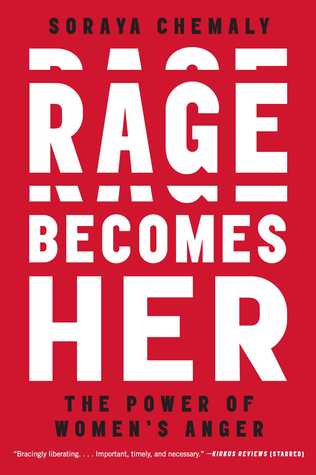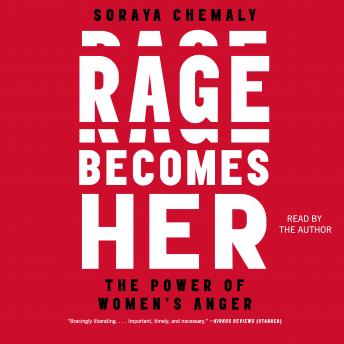
In Rage Becomes Her, Soraya Chemaly argues that our anger is not only justified, it is also an active part of the solution. Yet there are so, so many legitimate reasons for us to feel angry, ranging from blatant, horrifying acts of misogyny to the subtle drip, drip drip of daily sexism that reinforces the absurdly damaging gender norms of our society. Rage Becomes Her is an “utterly eye opening” ( Bustle) book that gives voice to the causes, expressions, and possibilities of female rage.Īs women, we’ve been urged for so long to bottle up our anger, letting it corrode our bodies and minds in ways we don’t even realize. Refinery 29, Book Riot, Autostraddle, BITCH stop tolerating the sexism, misogyny, racist humour, etc., and break those fraternal norms…” Watch the videos below for more on Soraya Chemaly’s book.NPR * The Washington Post * Book Riot * Autostraddle * Psychology Today As Chemaly stated, “What men need to think about is that the best way they can help the people they love is to call out other men. Therefore, men also need to explore the ways in which gender norms restrict their emotions and behaviour, and how they can be good allies.


Unfortunately, the stories women are telling through these movements threaten traditional masculine identities (e.g., that men must be the “protector” and the “provider”), and the result is that many men are responding with denial and even anger.


However, women are beginning to express their suppressed anger through movements like #MeToo and #TimesUp. This is detrimental to societal progress because anger is “the emotion that makes the most demands of the world around us.” Therefore, we need to allow and empower women to express their anger, and this must start early, because the socialization of anger as “masculine” and sadness as “feminine” starts at infancy and continues into adulthood.Īnger is “the emotion that makes the most demands of the world around us.”Īt the end of the discussion, Chemaly noted that men would be shocked if they knew how angry women actually are. In fact, many women are encouraged to use sadness – a retreat and less powerful emotion – as a way of minimizing or hiding their own anger, due to a fear of “breaking” relationships or feeling shame. “The book approaches the topic of anger from the perspective that we learn about anger as an experience of individuals,” began Soraya Chemaly, author of Rage Becomes Her: The Power of Women’s Anger, “but…our anger has a place in context.” It’s that context, she continued, that we need to understand.įor Chemaly, the 2016 United States presidential election highlighted the ways in which women’s anger plays out in society, and how it is often trivialized and suppressed – particularly the anger of racialized women.


 0 kommentar(er)
0 kommentar(er)
